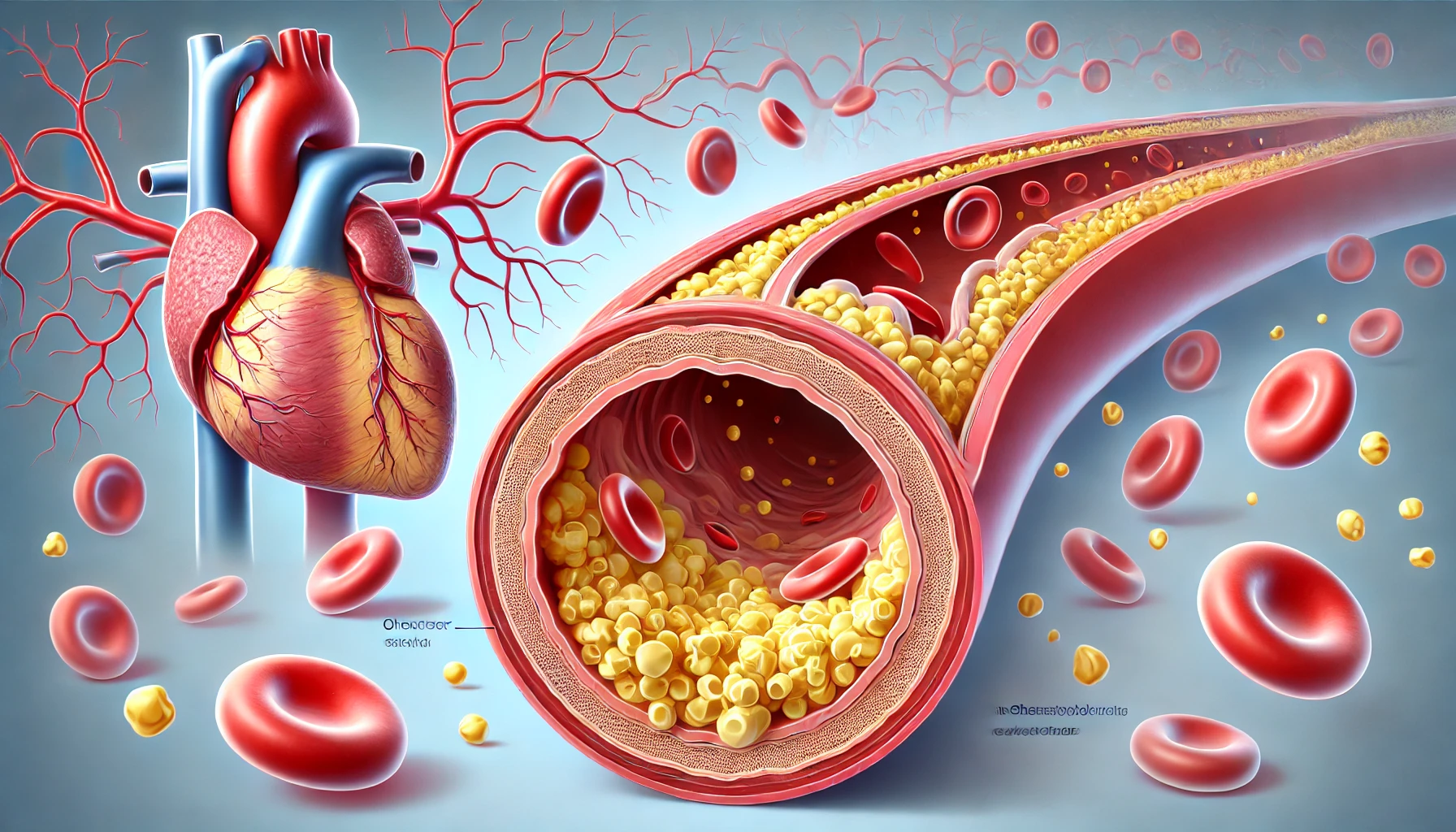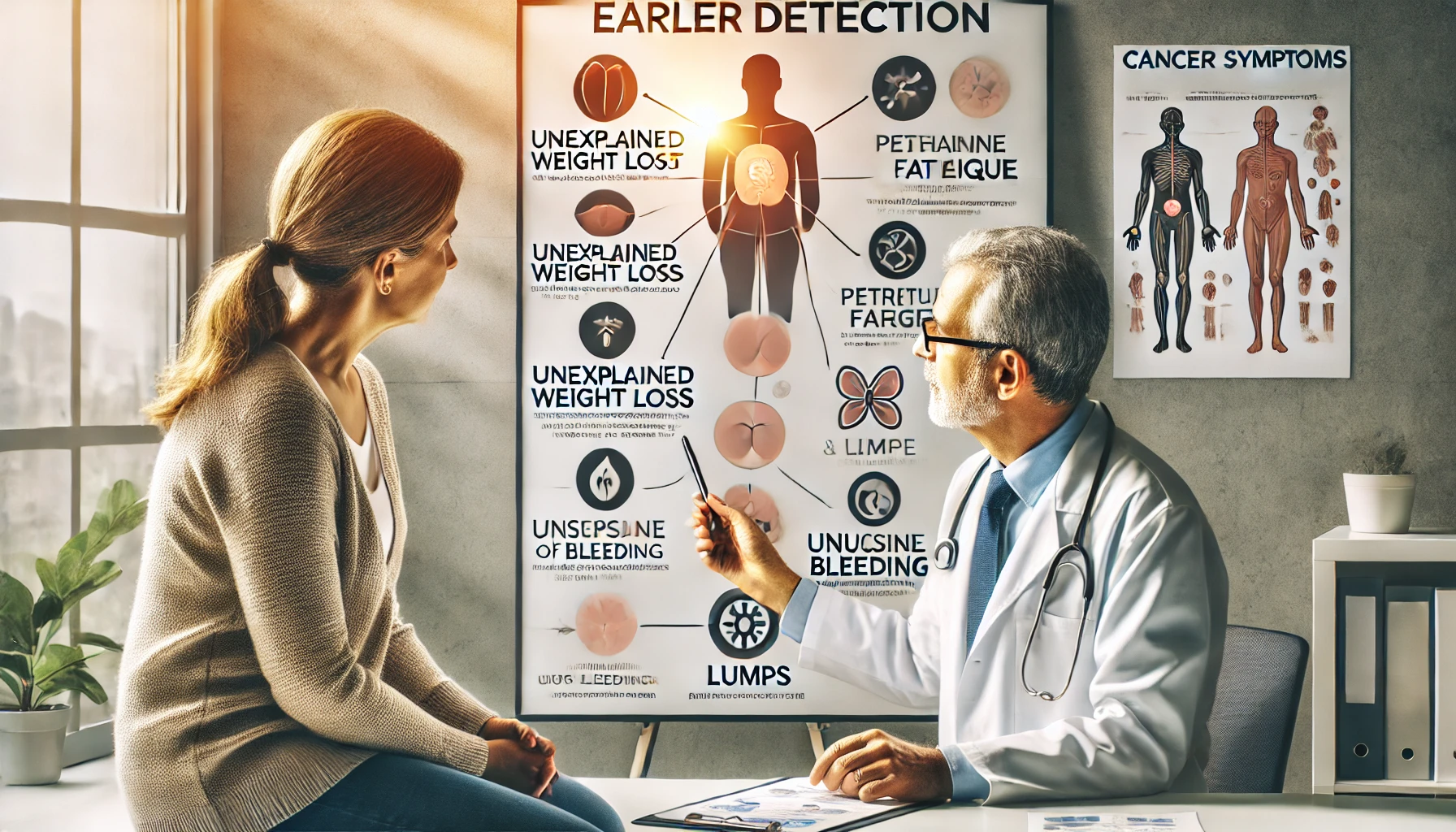
Important Points:
- Overview of why early detection of cancer symptoms is important
- List of 11 common cancer symptoms
- Tips for monitoring symptoms and seeking timely medical advice
Why Recognizing Cancer Symptoms is Crucial
Cancer symptoms can be subtle or easily mistaken for other health issues, which is why recognizing the early signs is crucial. Detecting symptoms early often allows for more effective treatment and can improve outcomes. While these 11 common cancer symptoms don’t necessarily mean you have cancer, they’re important to monitor and discuss with a healthcare provider if they persist.
1. Unexplained Weight Loss
One of the most common cancer symptoms is sudden, unexplained weight loss, particularly if you lose 10 pounds or more without trying. This is often seen in cancers of the pancreas, stomach, esophagus, and lung.
- Why It Happens: Cancer cells use a lot of energy, and the immune system may also cause weight loss by working hard to fight the disease.
- When to See a Doctor: If you experience significant weight loss without changes to diet or activity, consult a healthcare provider.
2. Persistent Fatigue
Cancer-related fatigue is different from regular tiredness; it doesn’t go away with rest and can interfere with daily activities. Persistent fatigue is common in cancers like leukemia, colon cancer, and stomach cancer.
- Why It Happens: Cancer can cause fatigue due to the toll it takes on the body and its effect on red blood cell production.
- When to See a Doctor: See a doctor if fatigue is severe, doesn’t improve with rest, and lasts for more than a few weeks.
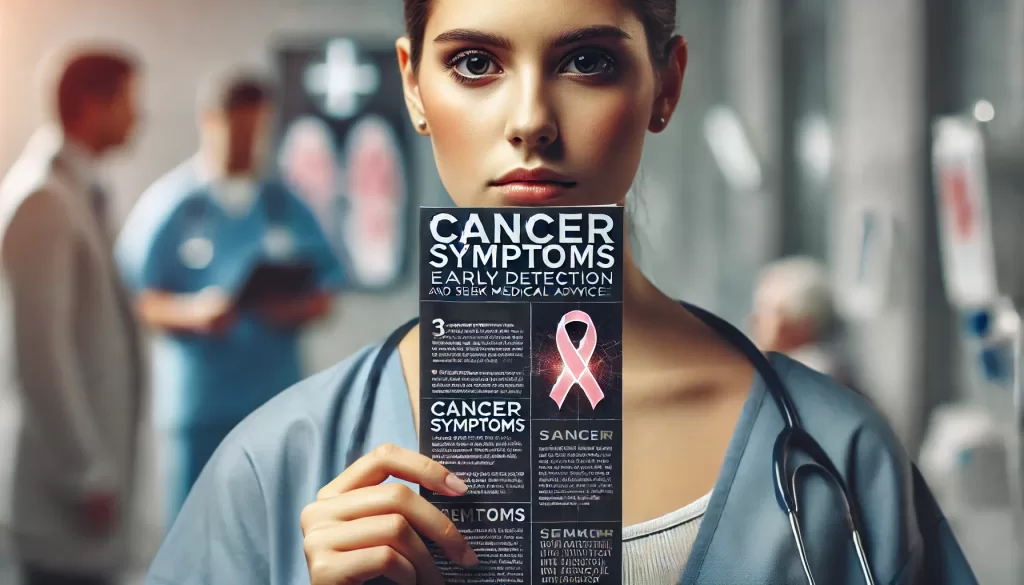
11 Common Cancer Symptoms
3. Lumps or Swelling
Lumps or swelling under the skin, particularly in the neck, armpit, or groin area, can indicate certain types of cancers, including breast, testicular, and lymphatic cancers.
- Why It Happens: Cancer cells can cause the growth of abnormal tissue or swell lymph nodes as the body tries to fight the disease.
- When to See a Doctor: If you notice a lump that doesn’t go away or is growing, have it examined by a healthcare provider.
4. Skin Changes
Skin changes, including new or unusual moles, sores that don’t heal, or darkening, yellowing, or reddening of the skin, can be early indicators of skin cancer and other cancers.
- Why It Happens: Cancerous changes in skin cells can lead to noticeable symptoms as they grow or spread.
- When to See a Doctor: Monitor moles or skin changes and seek medical advice if they evolve in size, shape, or color.
5. Persistent Cough or Hoarseness
A persistent cough, especially one that’s dry and doesn’t go away, or hoarseness can be a symptom of lung, thyroid, or throat cancer.
- Why It Happens: Cancers in the respiratory tract can irritate the lungs and airways, leading to persistent coughing.
- When to See a Doctor: If a cough or hoarseness persists for more than two weeks, it’s a good idea to get it checked.
6. Changes in Bowel or Bladder Habits
Unexplained changes in bowel or bladder habits, including constipation, diarrhea, or blood in the stool or urine, may indicate cancers like colon, bladder, or prostate cancer.
- Why It Happens: Cancer in the digestive or urinary systems can affect how these organs function, leading to noticeable changes.
- When to See a Doctor: Consult a doctor if you experience unusual bowel or bladder symptoms, especially if accompanied by pain or bleeding.
7. Difficulty Swallowing
Persistent difficulty swallowing, known as dysphagia, can be associated with cancers of the esophagus, throat, or stomach.
- Why It Happens: Tumors in the throat or esophagus can obstruct the passage of food and liquid, making swallowing difficult.
- When to See a Doctor: Seek medical advice if swallowing is painful or challenging for more than a few days.
8. Unexplained Pain
Pain, especially if it’s persistent or unexplained, can be a symptom of cancer, particularly in the bones or in organs where a tumor may be pressing on nerves or tissues.
- Why It Happens: Tumors can put pressure on surrounding tissues, leading to discomfort and pain.
- When to See a Doctor: If you experience persistent or severe pain without an obvious cause, consult your healthcare provider.
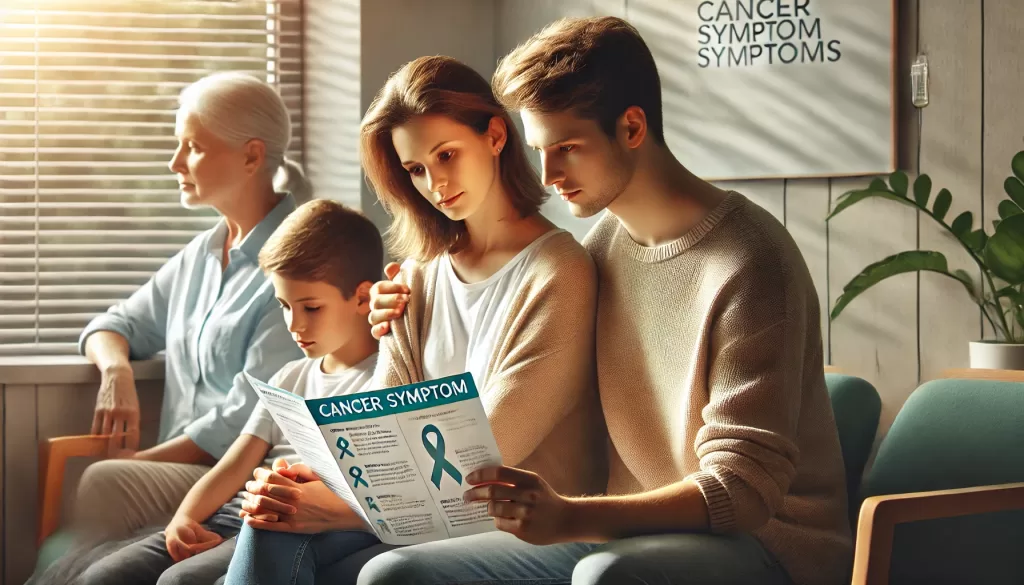
11 Common Cancer Symptoms
9. Fever
A persistent or recurring fever that doesn’t have an obvious cause could be an indicator of blood cancers, such as leukemia or lymphoma.
- Why It Happens: Cancer can affect the immune system, making the body more susceptible to infections that cause fever.
- When to See a Doctor: If you have a fever that lasts more than a few days or keeps returning, it’s worth getting checked.
10. Unusual Bleeding or Discharge
Unexplained bleeding, whether from the nose, in the stool, or during urination, can be a symptom of various cancers, including colorectal, bladder, or uterine cancer.
- Why It Happens: Tumors can damage tissue, leading to bleeding in the affected areas.
- When to See a Doctor: Any unexplained bleeding or discharge should be evaluated by a healthcare professional.
11. Changes in Appetite
A sudden change in appetite, either a loss of appetite or increased hunger, can be a symptom of stomach, pancreatic, or ovarian cancer.
- Why It Happens: Cancer can affect hormones and metabolism, altering appetite.
- When to See a Doctor: If you experience a noticeable change in appetite that lasts more than a few days, speak with a healthcare provider.
When to Seek Medical Advice
While these 11 symptoms in cancer patients can be related to other conditions, it’s essential to consult a healthcare provider if you experience one or more of these signs persistently. Early detection often allows for more treatment options and improves the chances of a positive outcome. Monitoring your body for changes and staying aware of these symptoms can be crucial steps in safeguarding your health.

11 Common Cancer Symptoms
Conclusion: Understanding and Acting on Cancer Symptoms
Knowing the 11 common cancer symptoms can help you recognize potential warning signs and take early action. From unexplained weight loss and fatigue to lumps and unusual bleeding, these symptoms are signals that something may be wrong. By being proactive about your health and seeking medical attention when necessary, you can play a critical role in early detection and treatment.

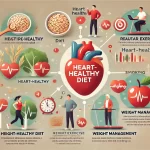





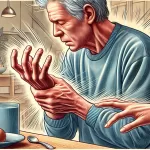 Previous Post
Previous Post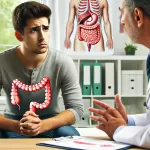 Next Post
Next Post
